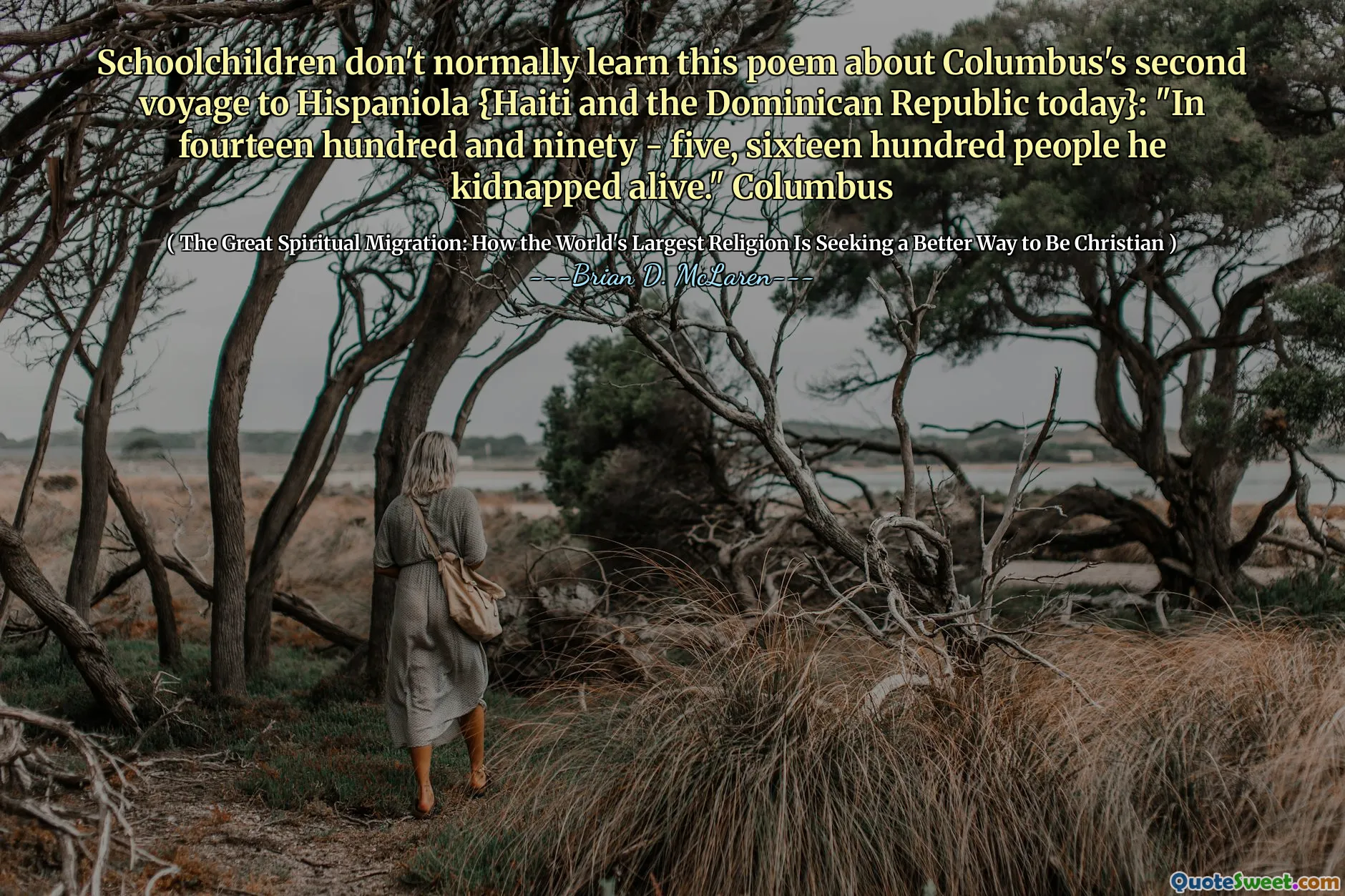
Schoolchildren don't normally learn this poem about Columbus's second voyage to Hispaniola {Haiti and the Dominican Republic today}: "In fourteen hundred and ninety - five, sixteen hundred people he kidnapped alive." Columbus
This quote sharply contrasts the traditional, often sanitized narratives about Christopher Columbus with a more somber reality of his second voyage. It serves as a powerful reflection on history and collective memory—especially concerning the way historical figures are portrayed in education. The line highlights a disturbing truth that is not commonly taught to children: the role Columbus played in the forced kidnapping and displacement of indigenous peoples from Hispaniola, which encompasses present-day Haiti and the Dominican Republic.
Such a poetic snapshot forces readers to confront the darker facets of colonization — violence, kidnapping, and exploitation — that underpin the surface-level celebratory stories told about Columbus. This reckoning has profound implications, particularly in today's discussions about justice, reconciliation, and the rewriting of historical narratives.
Considering Brian D. McLaren's work in "The Great Spiritual Migration," which focuses on seeking more compassionate, inclusive, and truthful ways to be Christian (and by extension, human), this quote aligns with the pursuit of truth and the dismantling of harmful myths long upheld by dominant cultures. McLaren advocates for embracing a better way of understanding history and spirituality, one that does not shy away from uncomfortable truths but instead incorporates them to foster healing and transformation. Here, revealing the full story about Columbus invites a more honest and empathetic engagement with the past, enabling new paths toward reconciliation, awareness, and ethical maturity.
In summary, this quote encapsulates a critical challenge to how history is often framed and taught, urging us to reconcile cherished myths with factual accounts through compassion and commitment to truth.






